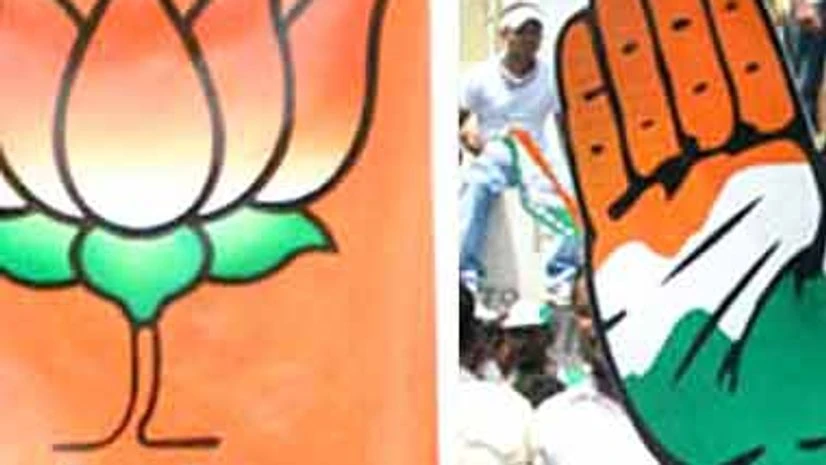In a move that could have far-reaching repercussions, especially in deepening the chasm between the ruling National Democratic Alliance and the Opposition Congress, the government on Wednesday vigorously defended its decision to phase out stamps of Indira Gandhi and Rajiv Gandhi and introduce more stamps of others who contributed to India as a nation.
While the move will go down well with anti-Congress parties like Samajwadi Party and the Biju Janata Dal, it will make it difficult for the government and the Congress to develop common political ground and vitiate consensus on contentious legislative issues.
Minister for Telecommunications Ravi Shankar Prasad said India had two kinds of stamps: commemorative and definitive. He said while definitive stamps were meant for use every day, four commemorative stamps had been issued for Indira Gandhi, two for Rajiv Gandhi and seven for Jawaharlal Nehru. “It is to be noted whether commemorative stamps should be issued so many times for one family,” Prasad said.
Also Read
ALSO READ: Cabinet decisions: Villages to become smart and more...
He said an advisory committee reviews, from time to time, definitive stamps to be sold in post offices. Eight definitive stamps have been issued for Nehru. “Maulana Abul Kalam Azad never figured in definitive stamps, despite the Congress being in power for so long. I would like to ask the Congress if Maulana Azad did not deserve to be on definitive stamps? Did Rajendra Prasad not deserve to be on definitive stamps,” Prasad asked, adding “The same is true of Vivekanand. Sardar Patel figured only once. Subhas Chandra Bose figured once in 2001 and then vanished. Our government honestly believes that whoever has contributed to India should be honoured. Postage stamps reflect that. We believe that this right should not be of one family alone."
Prasad said this was why the advisory committee decided that Mahatma Gandhi would figure on definitive stamps, as also Jawaharlal Nehru, also Sardar Patel, Maulana Azad, Subhash Chandra Bose, Bhagat Singh, Ram Manohar Lohia, Deen Dayal Upadhyay, Syama Prasad Mookerjee, Vivekanand, Maha Rana Pratap, Shivaji, Lokmanya Tilak and Mother Teresa. Tamil poet Subramania Bharti and mathematician Ramanujam would also be on this list. Four Bharat Ratna awardees for music -- Bismillah Khan, Pt Ravi Shankar, Bhimsen Joshi and M S Subbalakshmi -- would be included. This reflects Indian diversity, he said. “Why is the Congress worried? Have we removed Jawaharlal Nehru? Does the Congress want to view the country from a particular shade? We don't. This is a fundamental difference. There are so many who have contributed to the nation-building, but only Indira Gandhi’s image is on inland letter forms,” he said.
“People from the Communist Party of India came to me and told me that it is 125th death anniversary of Bhupesh Gupta. I assured them that there would be a postage stamp on him. We have decided that there would be postage stamps on revolutionaries of India -- Chandrasekhar Azad, Khudiram Bose, Raj Guru, Ashfaqullah Khan, Ramprasad Bismil and Batukeshwar Dutt. Also there would be stamps in memory of singers: Mohammad Rafi, Hemant Kumar, Talat Mehmood, Manna De and Mukesh. And this is not the last decision. It will be reviewed in two years. I don't know if the Congress recognises Jawaharlal Nehru as part of the family or not. And the Congress should make it clear its stand on Mulana Azad, Sardar Patel, Rajendra Prasad, Subhash Chandra Bose and Bal Gangadhar Tilak,” the minister said.

)
